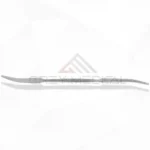When considering cosmetic dental procedures, one common concern is whether treatments might harm your natural teeth. Composite bonding is a popular, minimally invasive option used to repair chips, cracks, or discoloration, and to enhance the shape or alignment of teeth. Patients seeking composite bonding in Dubai often ask if this treatment can weaken or damage the underlying enamel. The short answer is no—when done correctly, composite bonding does not damage natural teeth. In fact, it’s one of the most conservative cosmetic procedures available today. Let’s explore the details to help you make an informed decision.
What Is Composite Bonding Made Of:
Composite bonding involves a tooth-colored resin material that is applied directly to the surface of the tooth. The resin is shaped, hardened with a curing light, and polished to match your natural enamel.
-
Resin base: Made from a blend of plastic (bis-GMA) and fine glass particles
-
Tooth-colored: Can be shade-matched to your natural teeth
-
Durable yet flexible: Strong enough for everyday function but not as hard as enamel
-
Applied in layers: Sculpted in thin coats for precision and control
-
Polished to perfection: For a smooth, glossy, natural-looking finish
No Enamel Removal Required:
Unlike veneers or crowns, composite bonding typically doesn’t require the removal of healthy enamel. This makes it a non-invasive and tooth-friendly treatment option.
-
Surface preparation only: Teeth are cleaned and lightly roughened, not drilled
-
No grinding needed: Entire enamel structure remains intact
-
Reversible: The bonding can be removed or replaced without harming the tooth
-
Conservative technique: Ideal for patients concerned about long-term impact
-
Less trauma: No pain or damage to the inner tooth structure
How It Bonds to Your Tooth:
The bonding process uses a mild etching solution to create tiny grooves in the enamel. This helps the resin adhere securely to the surface without altering the tooth’s natural strength.
-
Etching creates micro-roughness: Improves grip without cutting enamel
-
Adhesive agents: Form a strong bond between tooth and resin
-
Light curing: Hardens the material instantly and locks it in place
-
No drilling or anesthesia: Generally not required for cosmetic bonding
-
Protects rather than damages: Acts as a shield over vulnerable areas
When Damage Might Occur:
While composite bonding itself doesn’t damage teeth, poor technique or improper aftercare can lead to problems. Choosing an experienced professional and following post-treatment guidelines is essential.
-
Improper application: Can cause uneven wear or bite misalignment
-
Neglecting oral hygiene: May lead to decay under or around the bonded area
-
Biting hard objects: Can cause the resin to chip or fracture
-
Clenching or grinding: Puts pressure on the bonded surface
-
Lack of maintenance: Skipping dental visits may result in unnoticed issues
Maintenance and Preservation of Natural Teeth:
With proper care, composite bonding helps preserve your natural teeth while improving their appearance. It also supports overall dental health by sealing minor flaws that could worsen over time.
-
Daily brushing and flossing: Maintains health of both tooth and bonding
-
Avoid staining foods: Such as red wine, coffee, and tobacco
-
Regular checkups: Allow early detection of wear or damage
-
Non-abrasive toothpaste: Prevents scratching of resin material
-
Nightguards for grinders: Protect bonded teeth during sleep
Benefits of Composite Bonding for Tooth Integrity:
Composite bonding not only leaves your natural teeth untouched but also offers additional protective benefits. It can reinforce structurally compromised teeth and prevent further deterioration.
-
Fills small chips and cracks: Prevents future breakage
-
Seals enamel defects: Reduces sensitivity and decay risk
-
Improves bite surface: Distributes pressure evenly
-
Strengthens tooth margins: Especially in front teeth
-
Ideal for minor trauma repair: Without needing invasive work
Composite Bonding in Dubai: Safe and High-Quality Application
Patients undergoing composite bonding in Dubai have access to state-of-the-art clinics that use advanced techniques to protect the natural tooth while enhancing aesthetics. Treatment is safe, effective, and customized to individual needs.
-
Internationally trained professionals: Ensure precision and safety
-
Modern adhesive technologies: Promote strong, long-lasting bonds
-
Digital shade matching tools: Blend resin flawlessly with natural teeth
-
Minimally invasive protocols: Prioritize enamel conservation
-
Transparent treatment planning: Helps patients make informed decisions
Final Thoughts:
Composite bonding is one of the most tooth-friendly cosmetic procedures available today. It doesn’t harm or weaken your natural teeth and often reinforces them by covering and protecting vulnerable areas. As long as it’s applied by a skilled dentist and properly cared for, the bonding material works in harmony with your enamel—not against it. For those considering composite bonding in Dubai, the procedure is performed using high-quality materials and expert techniques that preserve your natural smile while delivering excellent aesthetic results. Always consult a qualified dental professional to ensure the treatment is right for your oral health and cosmetic goals.












